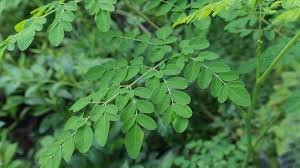How to Start a Moringa Powder Business:- All of you must know about Moringa. But today not many people know about the properties of Moringa. Due to its properties, it is very popular all over the world. Known as a “superfood”, since it is rich in vitamins, minerals, antioxidants and amino acids, the use of products made from Moringa is in great demand in the beauty industries apart from food and drink. If you want to do Moringa powder business. So in today’s blog we will give you complete information.

Why Start a Moringa Powder Business?
- Global Demand: Global Demand: Due to the growing health awareness among people and the properties of Moringa, it is being used as a diet.
- Sustainable and Scalable: Moringa trees can be grown anywhere. Its maintenance is very easy.
- Wide Applications: Moringa powder is also used in food supplements, skin care products, pharmaceuticals, and animal feed.
- Export Opportunities: The demand for Moringa powder is very high in Europe, America and Asian markets. The margins are also very high.
Step-by-Step Guide to Starting Your Moringa Powder Business
1. Conduct Comprehensive Market Research
- Identify Your Target Audience: Determine who your primary customers will be. These may include health-conscious individuals, fitness enthusiasts, beauty product manufacturers, and organic food stores.
- Analyze Competitors: Research successful brands to understand their pricing models, packaging styles, and marketing approaches. Identify gaps you can fill to stand out in the market.
- Focus on Specific Applications: Explore potential niches like organic food outlets, wellness centers, and cosmetic brands to tailor your products for maximum appeal.
2. Source Quality Raw Materials
- Cultivate Moringa: You can grow Moringa trees on your own land. They require minimal maintenance and thrive in tropical and subtropical climates.
- Collaborate with Farmers: Collaborate with farmers: You can get a steady supply of Moringa leaves from local farmers through contract farming.
- Quality Standards: Quality standards: Maintain the quality of Moringa and use organic Moringa leaves.
3. Set Up the Processing Unit
- Location: Location: The distance between the raw material and the processing unit should be short to reduce the transportation cost.
- Equipment Required:
- High quality leaf washing and drying machines.
- Grinding machines to convert dried leaves into fine powder.
- Packaging machines for sealing the final product.
- Maintain Hygiene: Adhere to food safety standards and ensure the processing environment is clean and sanitized.
4. Obtain Necessary Licenses and Permits
- Food Safety Certification: Having a license is a must to start a business. In India, you will need an FSSAI license, while other countries require equivalent certification such as FDA approval in the USA.
- Business Registration: Before starting a business, register your business with the local authorities and obtain GST registration if applicable.
- Export License: Export License: If you plan to export the products, secure an Import Export Code (IEC).
5. Focus on Branding and Packaging
- Brand Identity: Keep the brand name unique so that everyone can remember it. Make the brand logo attractive. One that customers will like.
- Packaging Design: Use eco-friendly and visually appealing packaging. Include nutritional details, usage instructions, and certifications.
- Certifications: Highlight certifications like “Organic” or “100% Natural” to attract health-conscious buyers.
6. Develop a Marketing and Sales Strategy
- Online Presence: Being online is a must for any brand. So create an e-commerce website for your product and list your products on platforms like Amazon, Flipkart and eBay.
- Social Media Marketing: Social media is a must to spread the word and benefits of your product. Use platforms like Instagram, Facebook and Pinterest to showcase the benefits of Moringa powder.
- Collaborate with Influencers: Partner with health and fitness influencers to increase your brand value.
- Export Opportunities: Participate in international trade fairs to connect with global buyers.
Investment and Profitability Overview
| Expense | Estimated Cost (₹) |
|---|---|
| Land Acquisition & Cultivation | 3–5 lakh |
| Processing Equipment | 5–7 lakh |
| Licensing & Certifications | 50,000–1 lakh |
| Branding & Marketing | 2–3 lakh |
| Miscellaneous Expenses | 1 lakh |
| Total Investment | 11–16 lakh |
Profit Margins
- Retail Price per Kg: ₹800–₹1,200
- Production Cost per Kg: ₹300–₹500
- Profit Margin: Up to 40–50% per kilogram.
Challenges and Solutions
- Quality Assurance: Invest in advanced drying techniques to retain moringa nutrients and maintain quality.
- Intense Competition: Build differentiation with certification, unique packaging, and value-added products like capsules or blended powders.
- Distribution Logistics: Partner with reliable logistics companies to ensure timely delivery of products.
Additional Revenue Streams
- Offer Moringa-based value-added products like teas, capsules, and skincare items.
- Develop customized blends with other superfoods like Spirulina or Turmeric.
- Export raw Moringa leaves to international markets.
Tips for Scaling Your Business
- Invest in organic farming certifications to appeal to health-conscious and international buyers.
- Educate your audience through blogs, videos, and workshops about the benefits of Moringa.
- Form partnerships with wellness centers and dieticians to boost credibility and sales.
Conclusion
Starting a Moringa powder business is a promising venture with immense growth potential. With its wide applications and increasing demand, the opportunities are endless. By ensuring quality, effective marketing, and strategic planning, you can build a profitable and sustainable business in this booming industry.
Embark on your entrepreneurial journey today and contribute to the health and wellness of people around the globe!